30 Jan Should I promote an Introvert?
We don’t often see the words “introvert” and “leader” in the same sentence. After all, the common perception is that extroverts make great public speakers and are excellent networkers – two things CEOs and organisational leaders must be – and that introverts are not.
If you are considering promoting an introvert then read on:
1. Introverts are prudent.
Unlike their extroverted counterparts who are more sensitive to rewards, which explains why extroverts are more pre-disposed to risk-taking, introverts take a circumspect approach to chance. This is why you hear extroverts say things such as, “Let’s just do it!” whereas introverts prefer to ask, “are we sure this is the right thing to do?”
2. Introverts learn by listening.
Introverts listen intently to what others say and internalize it before they speak. They’re not thinking about what to say while the other person is still talking, but rather listening so they can learn what to say.
Along the same lines, introverts share a common love of learning, according to bestselling author and founder of Quiet Revolution, Susan Cain. They are intrinsically motivated and therefore seek content regardless of achieving an external standard. How’s that for a performance standard? Read her book Quiet, it’s illuminating.
3. Introverts use their quiet nature.
Remember being in school and hearing the same kids contribute, until shy little Johnny — who never said a peep — chimed in? Then what happened? Everyone turned around to look in awe at little Johnny actually talking. This is how introverts leverage their power of presence: they “own” the moment by speaking calmly and deliberately, which translates to a positive perception.
4. Introverts demonstrate humility.
Not to say that extroverts aren’t humble, but introverts tend to have an accurate sense of their abilities and achievements.). Humility entails the ability to acknowledge mistakes, imperfections, knowledge gaps and limitations — all key ingredients for getting ahead in business and life.
Being humble also indicates an openness to hear new ideas or receive contradictory information and process it internally.
5. Introverts manage uncertainty.
Since introverts have a lower sensitivity to external rewards than extroverts, they’re more comfortable working with little information and resisting self-defeating impulses. Introverts are also more likely to persist in finding solutions that aren’t initially apparent.
Don’t believe me? Maybe you’ll believe Albert Einstein, an introvert, who said, “It’s not that I’m smart, it’s that I stay with problems longer.”
6. Introverts are comfortable working alone.
Introverts prefer working in isolation because it affords the greatest opportunity to focus.
Steve Wozniak, co-founder of Apple, put it this way, “Most inventors and engineers I have met are like me – they’re shy and they live in their heads. They work best when they are alone, and can control an invention’s design.
The myth that introverts are less effective leaders than their extroverted colleagues is just that.

